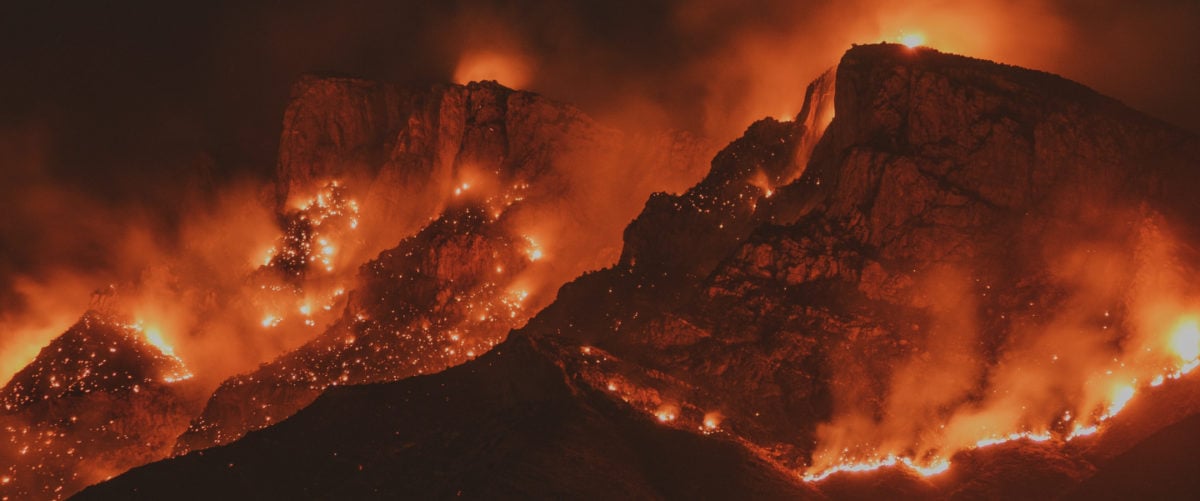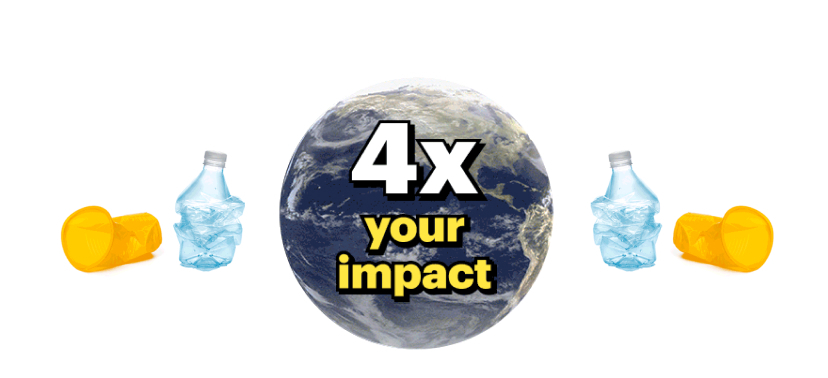Orange Skies and Watering Eyes? Blame Climate Polluters.
Published Jun 13, 2023

Recent wildfires underscore the dangers of the blazes and their smoke. But they'll only get worse if we don't slow climate change at the source.
In early June, millions of people in the United States woke up to an eerie red sun burning through hazy skies. In some places, many could not even see the sun through the orange fog blanketing their cities and towns.
The source: smoke from hundreds of wildfires blazing in Eastern Canada, blowing into the Northeast and Midwest United States. Tens of millions of people in the U.S. were under alert thanks to record-breaking air pollution.
Early reports suggest that lightning sparked Canada’s potentially record-breaking wildfire season. But what may have been more minor blazes years ago have been fueled to new heights by drier conditions caused by the climate crisis.
These fires will only get worse if we don’t stop the climate crisis at its source: polluting industries like fossil fuels and factory farms.
While Canada’s forests burn and millions stay indoors to shelter from dangerous air, powerful corporations are still recklessly endangering our climate.
Wildfire Smoke Is a Menace to Public Health
Air pollution is already a widespread problem. In 2019, the World Health Organization found that 99% of people globally live in places that don’t meet its guidelines for healthy air quality.
In recent years, wildfire smoke has created even more air pollution, as fires burn longer and more intensely. This is bad news for public health.
Surface symptoms include watery, stinging eyes, coughing, and headaches. But wildfire smoke can also worsen conditions like asthma and heart disease, leading to more emergency room visits and even premature death.
Of particular concern: particulate matter (PM). These tiny particles are given off by any combustion, including by car engines, power plants, and wildfires.
In the U.S. and around the world, PM is the greatest source of air pollution-related health problems. And wildfire smoke accounts for more than 40% of PM pollution in the U.S.
At the same time, wildfire smoke can carry other dangerous pollutants. For example, the 2018 Camp Fire in California spewed lead into the air.
The past few years have shown us that climate change-fueled wildfires and their smoke can threaten anyone. But these risks — and their consequences — aren’t distributed equally.
As with most crises, those with more resources can respond and cope better. They can move quickly to safer places; buy air filters and high-quality masks; work from home or take the day off to shelter inside.
These resource inequities often track with other inequities. For instance, outdoor workers like farmworkers, many of which are migrants and immigrants lacking basic labor protections, must often work through the smoke.
People without housing often can’t shelter inside during times of bad air quality. And communities of color are disproportionately vulnerable to the devastation that wildfires bring and more likely to struggle with economic recovery afterward.
How Our Climate Emergency Fans the Flames to New Heights
We can trace our current levels of wildfire-caused air pollution to the climate crisis. In many regions, climate change means hotter and drier conditions, often for a longer stretch of the year. Drier soils and plant life create more fuel for wildfires.
As a result, we see more intense fires, longer fire seasons, more area burned — and more smoke. Without the climate emergency, we could have seen half as much land torched by wildfires over the last 40 years.
What’s more, large wildfires create a dangerous climate feedback loop, as plants and trees that store carbon go up in smoke. This emits greenhouse gases, which accelerates climate change, which worsens wildfires, and so on.
Without strong climate action, CO2 emissions from U.S. wildfires could increase by 2.5 times compared to today’s levels. Moreover, with only a low level of climate action, dangerous PM2.5* pollution could triple by 2100.
Tackling the Root of the Crisis: Climate-Wrecking Industry
We can add orange skies and plummeting air quality to the long list of reasons we must stop climate pollution, especially from fossil fuels and factory farms.
Livestock is a leading source of methane emissions, a greenhouse gas with more than 80 times the impact of CO2. Moreover, factory farms’ outsized water use is a major contributor to water shortages in Western states like New Mexico and California.
Shutting down and stopping the growth of factory farms are crucial for both climate action and water management.
Additionally, we’ve known for a long time that we must move off fossil fuels to put the brakes on climate chaos. Yet, Big Oil continues to use its political power to greenwash and grow. Schemes like carbon capture, hydrogen, and factory farm gas threaten to lock us into decades of more drilling and burning.
Many politicians — working hand-in-glove with the fossil fuel industry — have supported these efforts. Most recently, Congress passed a budget deal that will push polluting projects forward, faster.
And President Biden, who ran on climate promises, has failed to follow through. His recent support for the Willow Project, liquid gas exports, new oil and gas drilling permits, and carbon capture will worsen the crisis.
That’s why we’re fighting to stop as many polluting projects as we can. That’s why we need to continue pressuring leaders to rein in climate-wrecking industries. This is how we deliver a livable future for everyone — one with fewer wildfires, less deadly air pollution, and more blue skies.
Tell President Biden to stop all new fossil fuel projects and declare a climate emergency!
* PM2.5 refers to particulate matter that is 2.5 microns in width or less.

Time to face it —~it’s people or plastics.~We can’t have both.
Become a plastic pollution fighter this Earth~ Day and have your gift MATCHED $3-to-$1!
Enjoyed this article?
Sign up for updates.
TO TOP


